The United States Senate Youth Program was founded in 1962 by a bipartisan group of historic Senate statesmen who were united in a vision for finding a new way to encourage the most talented high school students in the nation to consider careers in government. These four Senate leaders worked with the philanthropic sons of William Randolph Hearst, who had initiated the idea and vowed to provide the financial and administrative support for the program if the Senate would sponsor it.
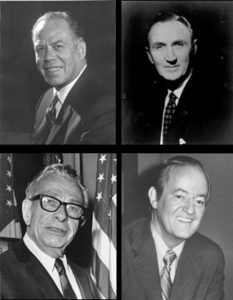
Clockwise from top left: Senator Kuchel (R-CA), Senator Mansfield (D-MT), Senator Dirksen (R-IL) and Senator Humphrey (D-MN). Photos courtesy of U.S. Senate Historical office.
Senator Thomas Kuchel of California, the Republican Whip, joined forces with the Majority and Minority Senate leadership of the day to establish an endeavor dedicated to public service, education and leadership. After arriving in the Senate in 1953, he was a vocal supporter of the Medicare program, the Nuclear Test Ban treaty and the creation of Redwoods National Park. Known as a maverick, this forward-thinking senator was frequently characterized as ahead of his time. In his last Senate floor address in 1968, Senator Kuchel said, “I think it is vital that the Senate of the United States lead public opinion instead of following it.”
Montana Senator Mike Mansfield spent 25 years in the Senate chambers, becoming the Democratic Whip in 1957 and Majority Leader in 1961. His tenure as floor leader continues as the longest on record to the present day. Following his Senate career, he devoted more than a decade to diplomacy, serving as the U.S. Ambassador to Japan. Senator Mansfield was awarded the nation’s highest civilian honor, the Presidential Medal of Freedom, for his lifetime of public service and dedication to America’s youth.
Everett McKinley Dirksen, Republican senator from Illinois, devoted almost 20 years of his life to the institution of the Senate, becoming Minority Leader for the last decade of his Senate career. He played an instrumental role in ending the filibuster which led to the passage of the Civil Rights Act of 1964. Incorporating a quote from Victor Hugo as the milestone legislation passed, Dirksen said “‘Stronger than all the armies is an idea whose time has come.’ The time has come for equality of opportunity in sharing of government, in education, and in employment. It must not be stayed or denied.”
Democratic Senator Hubert H. Humphrey, Jr., of Minnesota, known as the “Happy Warrior” for his civility towards all and passion for his cherished issues, rose from working at the counter of a pharmacy to become vice president of the United States, serving as the Minneapolis mayor and Senate Majority Whip along the way. He initiated the legislation that founded the Peace Corps and was a fierce advocate of civil rights and international disarmament.
Four Senate icons – two from each party – in the post-McCarthyism era in the early 1960s, overcame party divide to build a premier youth leadership program that endures to this day. Looking to pass the torch to America’s future leaders, they wrote “in the high schools of the United States, there exists among students who have been elected to student body offices in their junior or senior year, a potential reservoir of young citizens who are experiencing their first responsibilities of service to a constituency and who should be encouraged to deepen their interest in and understanding of their country’s political process.” See SR.324 that established the program in 1962.
These four Senate leaders set the example that later senators have followed with equal passion and care. The Senate Youth Program each year asks two senators, one from each party, to take the lead in hosting delegates from across our nation and overseas for the intense one-week experience of Washington Week. An eight-member Senate Advisory Committee, four senators from each party who serve in name only, is also established each year. The Senate Co-Chairs assist in securing Cabinet-level speakers, spend time one-on-one with students for a meal and keynote address, encourage their colleagues to meet their home state students at the USSYP annual Senate reception, and ensure that Washington Week is a once-in-a-lifetime event for all who experience it. Fifteen senators have taken on this responsibility on more than one occasion, with names that every A.P. History student will recognize: Kansas Senator Bob Dole, Minnesota Senator Walter Mondale, Rhode Island Senator Claiborne Pell and Tennessee Senator Howard Baker, among others.
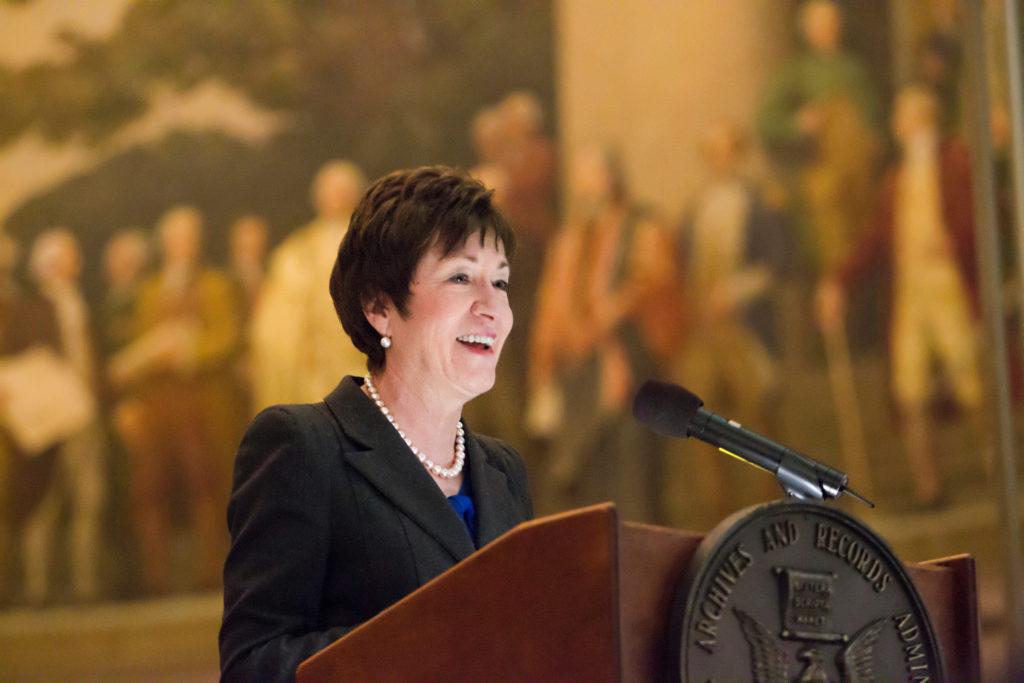
USSYP Alumna Senator Susan Collins of Maine addressing the 2012 delegates at the National Archives.
Several senators have gone above and beyond in showing their faith in America’s future leaders by serving as a Senate Youth Program Co-Chair on four separate occasions, Senator Susan Collins of Maine, an alumnus of the program, and Senator Richard Lugar of Indiana. Each senator who serves in this capacity offers personal insight and inspiration to the young minds gathered in the nation’s capital, and in return, receives the deep satisfaction of knowing the future is in good hands. Senator Collins urged delegates to “Believe in yourselves and take risks,” in 2002. A decade later, serving again as Co-Chair, Senator Collins reminded delegates of the important foundation for the future that Washington Week strengthens, “I am here to tell you that the scholarship, leadership, and community service you gain from this program will take you anywhere you want to go.” Louisiana Senator John Breaux, who served as Co-Chair in 1993 and 2002, echoed that sentiment and advised delegates to always “Be prepared and willing to take the chance to live your dream.” Texas Senator Kay Bailey Hutchison, who served as Co-Chair in 1997 and 2005, observed, “This program has produced the leaders of this country,” and generously gave of her time answering many questions from her avid audience.
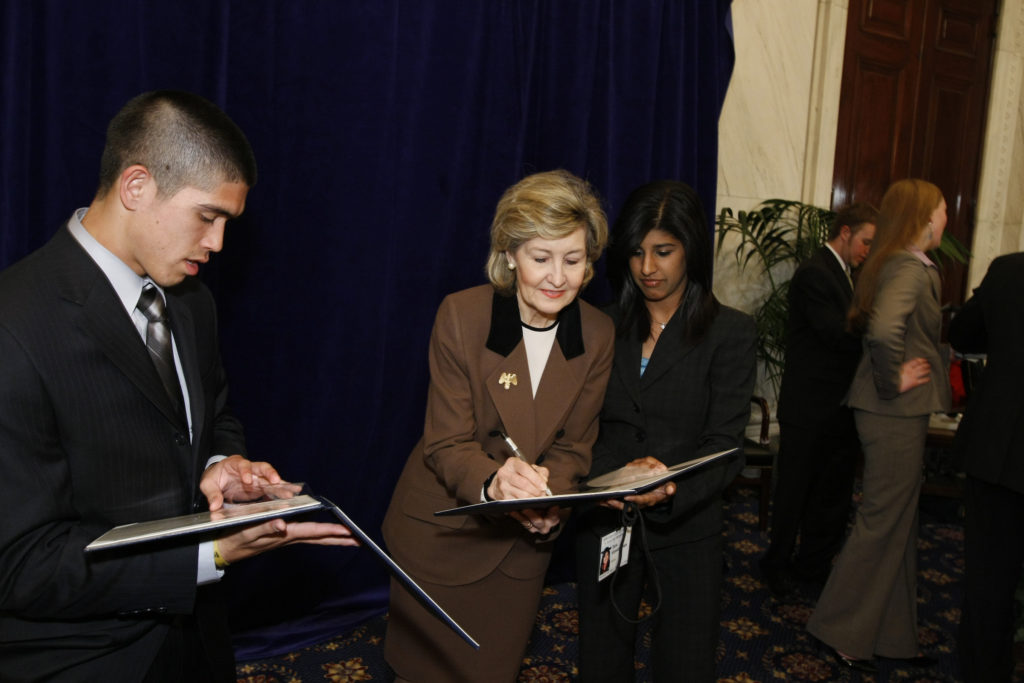
Senator Kay Bailey Hutchison of Texas with delegates in 2005.
Four-time Co-Chair Senator Richard Lugar agreed with the emphasis on working across party lines, “Our Senate and House procedures are sometimes characterized as fractured, or gridlocked, but there is a very strong bipartisan strain, and it is an important thing to emphasize.” He had high expectations for the USSYP delegates seated before him, “I would encourage it of each one of you that a part of your life might be spent in public service, if not in elected office, in appointive offices in which you can give of yourselves, of your intellect, of your hearts to so many people who really need you.”
Two-time Co-Chair, and recently retired Mississippi Senator Thad Cochran, spoke of bipartisanship, civility and the joy of public service describing the cooperation and friendship he had with his longtime colleague on the Senate Appropriations Committee, Senator Daniel Inouye of Hawaii. He said that what he enjoyed most about his life in the Senate was “The excitement and opportunity of working with bright, talented people who serve in the Congress and those who are working in high levels of responsibility in the executive branch as well.”
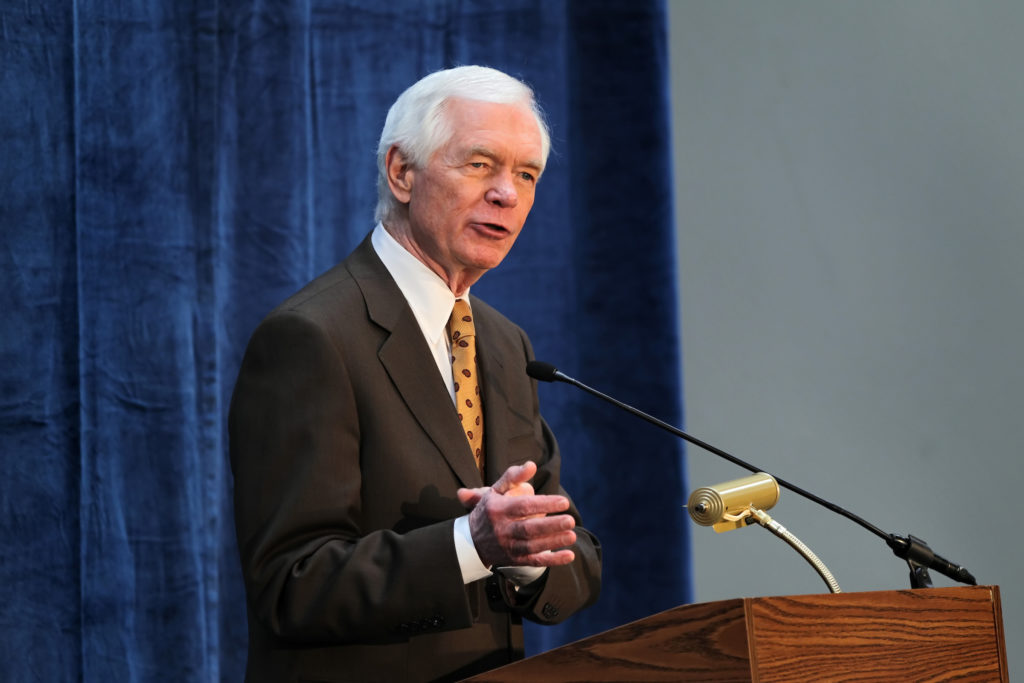
Senator Thad Cochran of Mississippi addressing the 2010 delegates.
The Senate Youth Program is fortunate to have the support of every senator, dating back more than five decades. Each senator who has personally given of themselves to establish and maintain the vibrancy of the program, from the four bipartisan founders, to those who have served as Co-Chairs or Advisory Committee members help to ensure the legacy will continue for many generations to come.
© Photos by Erin Lubin and Jakub Mosur
